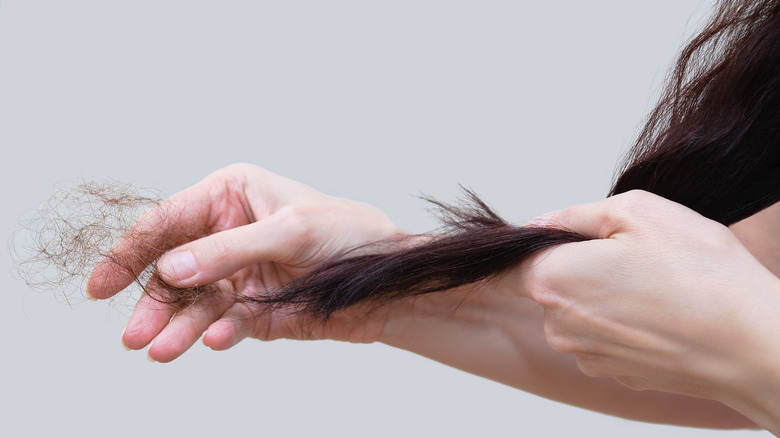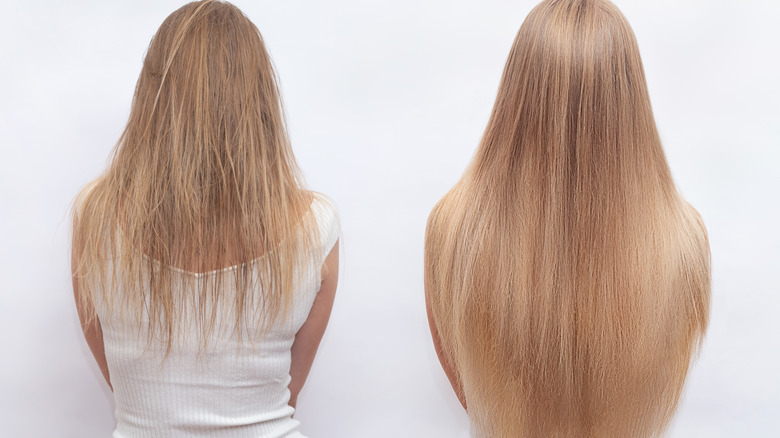The Surprising Effect COVID-19 Can Have On Your Hair
When you think of COVID-19 side effects, what comes to mind? If you are like most people, you probably think of fatigue, cough, and loss of smell and taste. It is true that COVID-19 often has these side effects, which (for some people) can last weeks or months after recovery from the virus itself. What is less commonly known is the effect that COVID-19 can have on a person's hair.
Actress Alyssa Milano vented on Twitter last August about the clumps of hair that came out whenever she brushed her hair post-COVID. She is not alone; a survey conducted by Survivor Corps found that more than one-third of 1,700 respondents reported experiencing hair loss after COVID-19. Dermatologist Dendy Engelman told Healthline that in her office, there has "been at least a 25 percent increase in people coming in with hair loss, and that's from a place of already being busy dealing with hair disorders". Dr. Engelman also says that people become more emotional about hair loss than any other health issue treated in her office, "including skin cancer."
Hair loss after COVID-19 is common, but typically temporary
Dermatologist Lauren Ploch informed the AARP that some patients can lose up to one-third of their hair. This is pretty extreme, so why does it happen? According to Healthline, it is unlikely that the virus itself leads to hair loss. The more likely culprit is the serious stress (both emotional and physical) that is evoked by having the virus. Extreme stress can lead to a condition called telogen effluvium, in which the body focuses solely on essential functions. As Ploch tells the AARP, the body "is focused on healing and repairing itself, and not focused on hair growth."
Fortunately, the effects fade with time. It may take a while — perhaps up to a year — but eventually, your hair will grow back and return to its initial fullness and length. In the meantime, most supplements and drug store products are unlikely to help the situation. You would be better off resting, consuming a nutrient-rich diet, and finding ways to effectively cope with stress. Dr. Sara Hogan told WebMD that self-care methods such as yoga and meditation may be helpful.
If it has been six months and there are no signs of improvement, it may be time to see a dermatologist. They can prescribe medication such as minoxidil to treat the condition. But in reality, this probably won't be necessary; the condition typically resolves on its own within a year.


